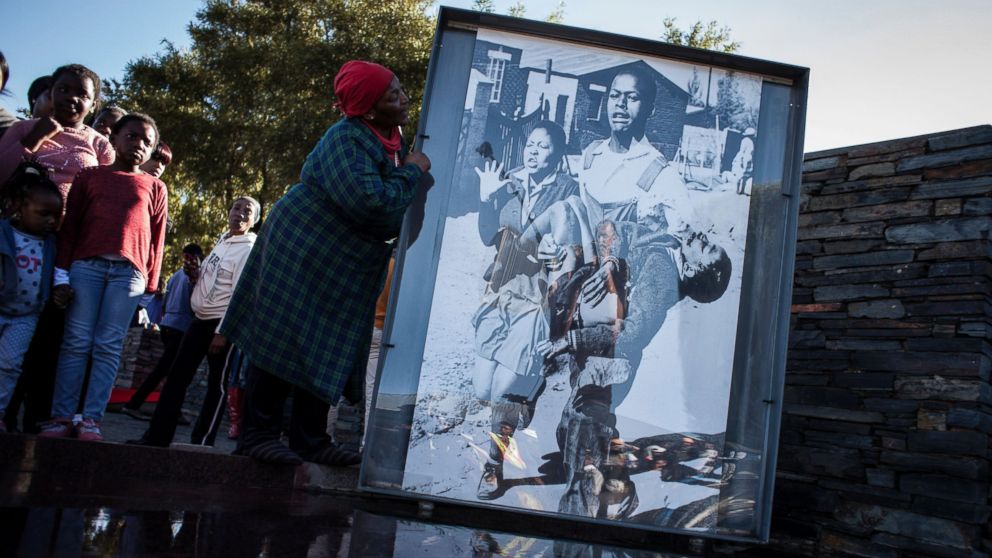40th Anniversary of Anti-Apartheid Soweto Uprising in South Africa
Scores of students were killed in protests over government mandates.

— -- South Africans today marked the 40th anniversary of the Soweto uprising, when the streets of the township south-west of Johannesburg were stained with blood in one of the country’s most notable anti-apartheid uprisings.
Thousands sang and danced at Orlando Stadium in Soweto today, where South African President Jacob Zuma paid tribute to the black students killed by security forces during the 1976 protest against a government directive that they must study in Afrikaans, the Dutch-based language of the white minority rulers who enforced a system of racial segregation known as apartheid. Hundreds are estimated to have been killed in the government clampdown that followed.
“Students revolted not only against the imposition of Afrikaans but against Bantu education because they knew it was inferior and that it was designed to prepare them to be drawers of water and hewers of wood,” Zuma said while addressing the crowd in Soweto. “Heavily armed police opened fire on the students as they were marching peacefully and refused to disperse. Fifteen-year-old Hastings Ndlovu and 12-year-old Hector Pietersen were the first to be brutally killed by the police.”
Another student, Umbiswa Makhubo, was photographed by a local journalist as he carried Pietersen’s limp, bloody body. The striking photo was printed by newspapers around the world, becoming an iconic image of the anti-apartheid struggle and prompting global outrage at the killings.
A memorial and museum was erected in Pietersen’s name years later near the area where he was shot. South African Vice President Cyril Ramaphosa led a wreath-laying ceremony at the memorial today, which is a national holiday in the country.
During his speech in Soweto today, Zuma hailed South Africa’s achievements since the Soweto uprising. The country broke free of its apartheid chains in 1994 and is now Africa’s most industrialized economy.
“Indeed our freedom was not free. Many paid a heavy price for it. Many lives were destroyed. Many lives were lost,” he told the audience at the stadium. “The struggle and sacrifices of the class of 1976 were not in vain.”
But South African youth today are facing a new set of challenges. The economy grew by just 1.3 percent last year and major sectors have shrunk due to a weak currency, low consumer demand and rising inflation. South Africa narrowly avoided a downgrade to its credit rating to junk status earlier this month, according to Reuters.
Frustrated by a lack of opportunities, students in recent months have burned university campuses in protest of high tuition fees, which they feel put a college education out of reach for black youth. Meanwhile, health officials have said drug abuse is on the rise.
“The only person who can liberate you is yourself," Lesedi Mashinini, a niece of a student leader during the Soweto uprising, said while addressing the stadium today. "No to drugs and burning of schools."




